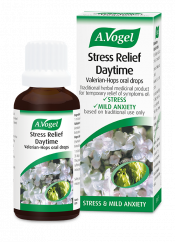Love your adrenals, part 1
'Have faith in small things, it is in them your strength lies.’ Whilst Mother Teresa was not referring to the adrenal glands in her famous quote, we would be wise to stop and give them such consideration.
Situated on top of our kidneys, they may be only small, weighing on average 5g and measuring between 3 to 7 cm each, but their function is crucial to good health and to life itself.
Our adrenal glands take the impact for every form of stress, whether that be:
- Physical (health conditions, surgery, substance abuse etc),
- Emotional (relationship challenges, grief, fear etc)
- Psychological (work pressure, too many demands, long to do lists etc).
At the first sign of stress they produce hormones such as adrenaline, noradrenalin, cortisol, aldosterone and sex hormones which combine to regulate energy production and storage, immune function, heart rate, muscle tone, fluid levels, blood pressure and other processes that enable you to cope with the incoming stressors.
What goes wrong
Phoenix-based holistic nutritionist Paula Owens states that “For every minute you experience stress, it takes 60 minutes to remove the flood of adrenal stress hormones from your bloodstream.”
Imagine then what happens if we experience chronic and long term stress? Slowly but surely the adrenals’ ability to produce these regulatory stress hormones diminishes and they begin to wear out.
A single and very intense bout of stress could also cause similar effects. The result? Tired and impaired adrenal glands that may continue to function but at a far from optimum level. The adrenals literally become fatigued. The condition is known as Adrenal Fatigue or Adrenal Syndrome.
What are the symptoms of Adrenal Fatigue?
A wide range of symptoms can be experienced as adrenal function becomes impaired and different people obviously experience different symptoms. The following list represents some of the most common:
- Food cravings – often for salty or sugary foods
- Weight gain – especially around the middle
- Energy changes – either lots of energy (running on adrenaline!) or very little. Tired and wired. Exhausted on waking but heightened energy levels late afternoon/evening.
- Emotions and coping ability: decreasing ability to deal with day to day stress, feeling overwhelmed, feeling driven and short fused or low and unable to do anything,
- Thinking: Foggy thinking, inability to stay focused on one task, chronic racing thoughts, negative thoughts and inability to think positively and rationally.
- Immune response: Frequent colds and infections, slow recovery from illness or trauma.
- Sleep: Inability to fall asleep or fall asleep easily but wake up often. Sleep soundly but wake up exhausted.
- Hormones/Libido: Worsening of perimenopausal symptoms and severe PMS (for women). Low libido.
Other symptoms may include:
- Digestive disorders
- Rapid heartbeat
- Muscle and joint pain
- Blood pressure problems and dizziness on standing
- Allergies and intolerances
If these symptoms are left unaddressed they can also lead to other chronic health issues such as thyroid disorder, chronic fatigue syndrome, fibromyalgia etc.
How do I know if I have Adrenal Fatigue?
GP
If you are experiencing any of these symptoms it is important to consult your GP as a first port of call to rule out other health conditions. However, whilst knowledge and treatment of Adrenal Fatigue is growing rapidly, the NHS cannot always provide tests to diagnose this.
Practitioners
Nutritionists, Naturopaths and Medical Herbalists do have access to saliva tests and can discuss your medical history in depth. Please refer to the following links:
www.bant.org.uk/
www.naturopathy-uk.com/resources/resources-practitioners/
www.nimh.org.uk/
What can I do to help myself?
The good news is, that with the right support from a healthcare practitioner, lifestyle and dietary changes, herbs and supplements, Adrenal Fatigue can be addressed and dramatically improved.
In the forthcoming blog posts, we will look at different actions you can take to help avoid causing further havoc and to love your adrenals back to better health!
Please note: It is important to get an accurate diagnosis from a healthcare professional so a suitable treatment programme can be tailored to your individual requirements.








